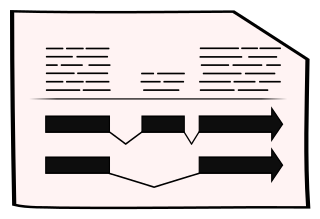Schistosoma japonicum
BioProject PRJNA724792 | Data Source Tongji University School of Medicine | Taxonomy ID 6182
About Schistosoma japonicum
The trematode Schistosoma japonicum, or Asian blood fluke, is a parasite of significant public health importance in China, Taiwan, the Philippines and Southeast Asia. S. japonicum is one of the three major infectious agents responsible for the chronic debilitating disease schistosomiasis. The intermediate host for the parasite is snail and the definitive host a wide range of at least 31 species of wild mammals, therefore it can be considered a true zoonosis. Burdens of morbidity are high and schistosomiasis may contribute to several hundred thousand human deaths annually.
There are 2 alternative genome projects for Schistosoma japonicum available in WormBase ParaSite: PRJEA34885 PRJNA520774
Genome Assembly & Annotation
Assembly
The full assembly process is described in Xu et al., (2022). Scaffolding was conducted using bowtie 2 version 2.3.3.1. Raw PacBio reads were aligned to each other using daligner, executed using the falcon (version 0.7) assembler. Overlapping reads and raw subreads were processed to produce consensus sequences.
Annotation
The full annotation process is described in Xu et al., (2022).
Downloads
Tools
Key Publications
- Xu X, Wang Y, Wang C, Guo G, Yu X, Dai Y, Liu Y, Wei G, He X, Jin G, Zhang Z, Guan Q, Pain A, Wang S, Zhang W, Young ND, Gasser RB, McManus DP, Cao J, Zhou Q, Zhang Q. Chromosome-level genome assembly defines female-biased genes associated with sex determination and differentiation in the human blood fluke Schistosoma japonicum. Mol Ecol Resour, 2023;23(1):205-221
Navigation
Assembly Statistics
| Assembly | ASM2521551v1, GCA_025215515.1 |
| Strain | F4M4 |
| Database Version | WBPS19 |
| Genome Size | 406,576,294 |
| Data Source | Tongji University School of Medicine |
| Annotation Version | 2023-10-WormBase |
Gene counts
| Coding genes | 9,760 |
| Pseudogenes | 1 |
| Gene transcripts | 9,761 |
Learn more about this widget in our help section
This widget has been derived from the assembly-stats code developed by the Lepbase project at the University of Edinburgh












